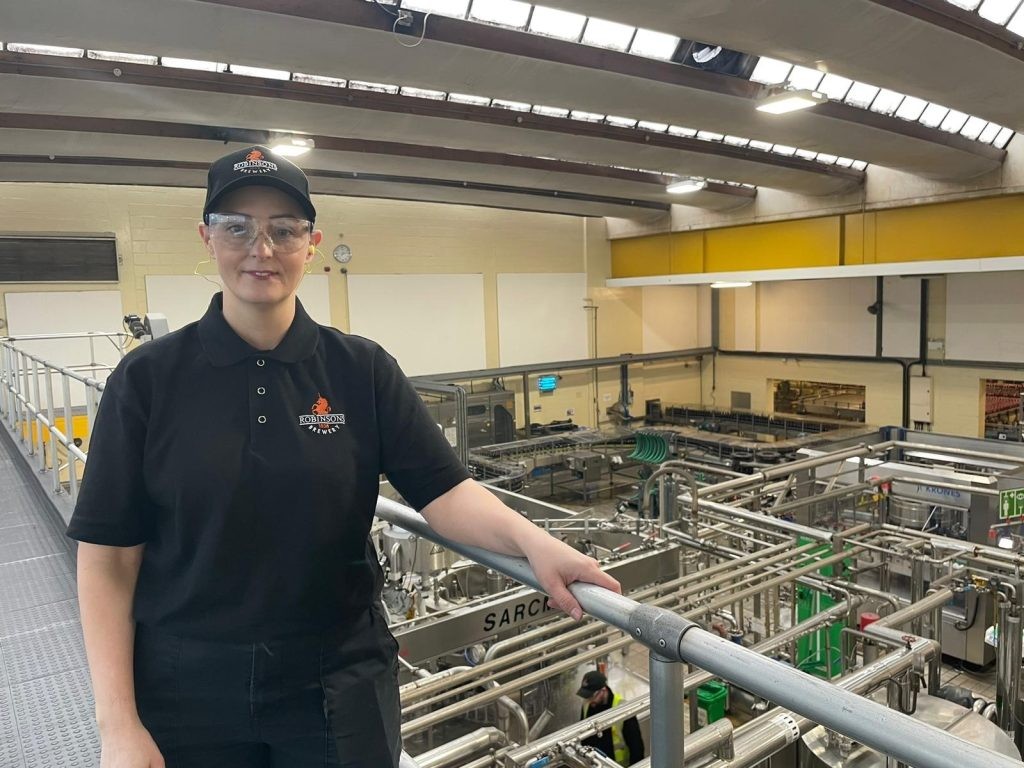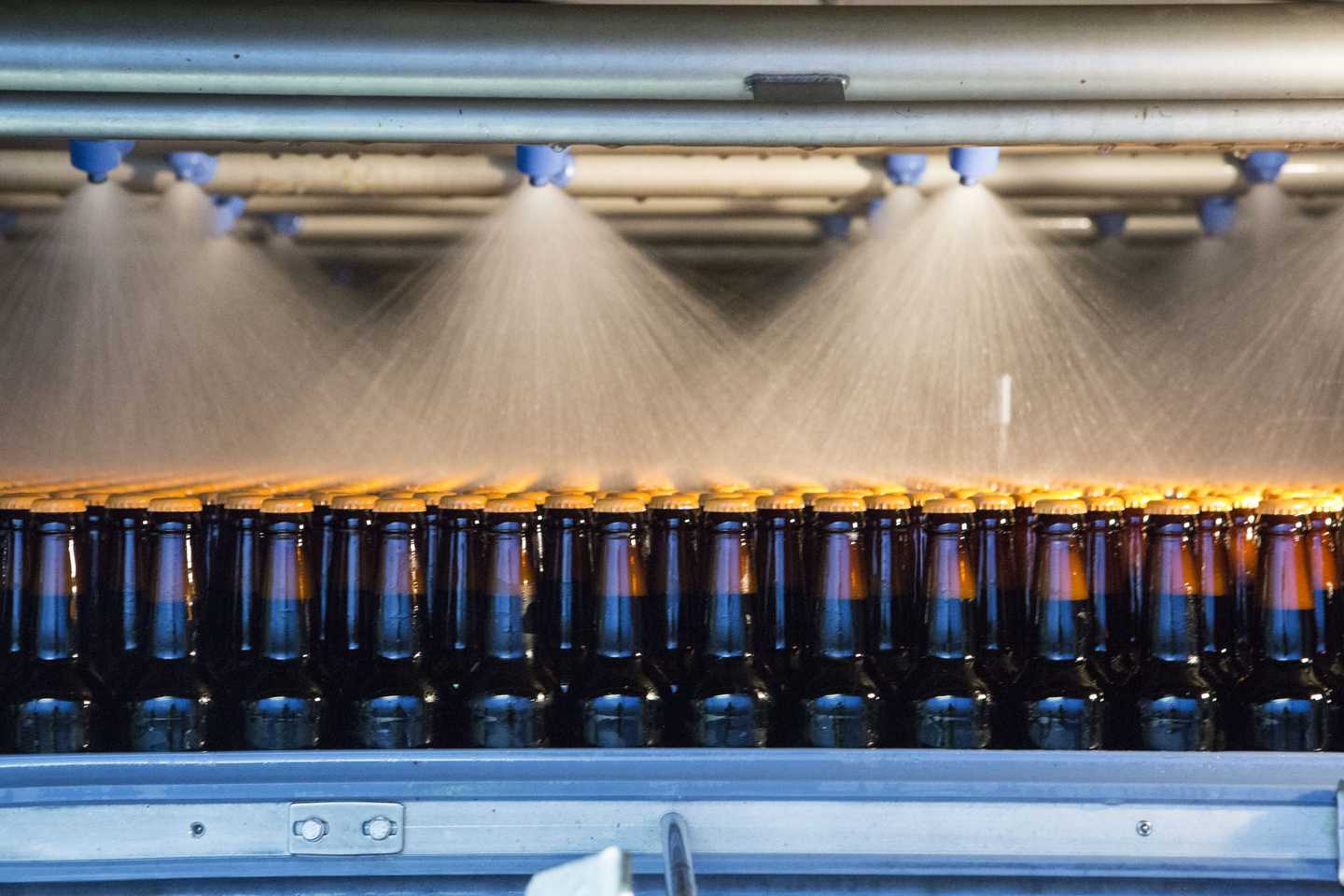Robinsons' Leading Production Operative

What brought you to Robinsons?
In April, I’ll have been at Robinsons for 18 years. I started here in 2007 on the night shift as a Label Operator on the bottling line. That was an old night shift that used to be from 11:30pm – 7:30am. It only lasted about 3 years, then I moved onto the later day shift. I got the job through my dad who used to work at Robinsons, in fact he worked here for 42 years!
In 2019 a job opportunity came up for Leading Production Operative. It was something I wanted to do and wanted to progress, so I thought I’d push myself out of my comfort zone and apply for the job. I was delighted when I got it.
Amazing, so what does your role as Lead Production Operative consist of?
I believe as a leader it's important to be hands on, you've got to roll your sleeves up and get on with things. I think this helps build the team’s trust and willingness in working better together. I’m fortunate that we have a great team of people with all different skill sets and knowledge, they are great at really pulling together and being flexible and supportive to make sure we produce a great quality end products for our customers.
My role is to help the shift managers oversee the production proses to make sure it's running as smoothly and effectively, helping support the team in changeovers and sometimes covering assets when we have absences. I cover the shift managers when they aren’t on site, making sure everyone is in the right place at the right time. We have a team meeting every day to say what our expectations are, if we know of any faults or issues for the day and we can try to eliminate them and optimise the efficiency of the line that day. I’m very hands on, if there is a fault or something going on, I’m on the production line floor to assess the situation. It’s also doing lots of checks and signing off each stage of the process.
My job is also helping to support the team in dealing with issues on the line and working it out methodically, to get to the root cause of problems and ensure we produce a great quality products. I also help to run the bottling line and ensure its to be efficient and effective.
So, tell us a bit more about that?
The product starts in the tank room, gets processed and then analysed for QA checks, then it comes out to the filler, then we’ve got the bottling line. The bottles will come from the de-pal, to the filler, get filled with the product and go to the pasteuriser. After that they’ll pass through the labeller, and that’s one of our biggest challenges.
Sometimes we get different materials for the labels, and they will react in a certain way so it might cause a creased label or something if everything is not managed to perfection. Obviously, we pride ourselves on quality and so we want ensure everything is done well. It can be challenging but as a Lead Op having all the previous experience as a labelling operator it’s really nice that I’ve got the experience to encourage new operators. I can guide and reassure them. I will help them find faults, it’s great when you’ve spent a lot of time with that new person, helping them find the fault-finding techniques and they can then correct it themselves, and they are proud of that. That gives me a lot of job satisfaction.
What exactly is ‘fault finding?’
When we say fault finding its making sure we do one thing at a time, it’s doing things like monitoring the speed of the label, how the glue reacts to the bottle, sometimes plastic labels can create static which can be a nightmare, so it’s trying to alter all the elements to make sure the labels are perfect.
It sounds like you really value your team. What’s your best bit about the role?
It’s the people I work with. We’re like a family. As well as work shifts together we go out to celebrate things as a team. It’s really nice, even people who have retired come back to our socials, which is lovely. There is a real sense of community at Robinsons.
I also think I’m quite empathic, I can normally tell if somebody in my team isn’t having a great day, and I think sometimes you do need to put an arm around them. People do have lives and things going on at home and it’s important to know they have somebody to talk to. Its important to me to make sure my team is doing ok.
What are some of the challenges in your role?
I wouldn’t say there is ever two days the same. Some of the biggest challenges are when we have mechanical faults, they are difficult for lots of reasons. Sometimes they can take quite a while to fix or diagnose and then that pauses the running of the line. We are fortunate to have our own engineers, but fixing issues can sometimes take time. That then presents a challenge as we have to catch up. Generally though, if there is something to go wrong – it’s the labeller. I spent eight years working with that machine, so I learned how to manage them challenges well.
You mentioned earlier that you work shifts, how do you balance shift work with life?
At first it did take a bit of adjustments. But now it’s nice to have a balance and be able to do things with my days when I’m on a later shift. If I do a morning shift it sometimes doesn’t feel like I do as much, so it’s nice to be able to make plans in the day to see my family.
It’s International Woman’s Day this week – what’s it like to be a woman in your role?
When I first started in 2007, it was very male dominant. All the managers and shift supervisors were men, I was the only female on my shift. But as time has gone by its nice to see we have got female shift managers and across the entire process.
When I was a child, I remember coming to see my dad here at UPC in Bredbury and I was fascinated at the keg plant I said to him “I'd love to work here one day”, and he said, “You can but it will be in the laboratory, this is more of man's job”. Women didn’t work on the factory floor back then. He said, “you don't want to be working on the bottling line”. But here am I managing the bottling line.
I would like people to better understand that females are grafters as well. We can get our hands dirty and achieve anything they put their minds to. I come from a long line of strong independent hard-working women in my family that have inspired me and support one and other along the way.
I don’t think leadership is a position or a title, it is not masculine or feminine. Instead, it is action and example. Most women we know are already leaders among their family, friends and within their communities.




